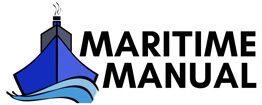What Is A National Maritime Transport Policy?

Maritime transportation is an essential component of any programme for sustainable development because the world relies on a safe, secure and efficient international shipping industry.
With this in mind, IMO developed a concept of a Sustainable Maritime Transportation System with a view to providing a blueprint for countries to develop their maritime transport infrastructure in a safe, efficient and environmentally sound manner, in keeping with the global process to develop Sustainable Development Goals (SDGs) that were launched at the Rio+20 Summit on Sustainable Development in 2012.
With this comprehensive regulatory framework put in place and a new approach to the delivery of technical assistance, IMO also introduced the concept of providing assistance to its Member States in the formulation and development of national maritime transport policies (NMTPs), thus strengthening the maritime capacities and contributing to the achievement of the SDGs.
Moreover, NMTPs are also complimentary to the concept of the “Blue Economy” which is closely associated with sustainable development and Small Island Developing States (SIDs).
Training package
To assist developing countries in formulating and enhancing their NMTPs, the Secretariat, in close cooperation with the World Maritime University (WMU), developed a training package and material on the development, adoption and updating of NMTPs.
The training package consists of a three-day workshop for personnel involved in the preparation of NMTPs and a one-day seminar for senior transport officials involved in the review and adoption process of NMTPS. The training package has dual objectives; first, to provide a standard of knowledge and skills to all participants, so as to enable them to understand the major elements incorporated into a maritime transport policy and its foundations, and second, to ensure proper understanding of the obligations of States and their implications, when formulating maritime policy and legislation, on the basis of international maritime treaties.
The package, which has a broad global dimension and is not country specific, explores and encourages discussion on the priorities and challenges in formulating and developing maritime transport policy at national level and discusses the information base and readiness essential to develop and implement such a policy also focusing on meeting global and regional standards.
A number of pilot training events, consisting of regional and national workshops and seminars, aimed at assessing the delivery and material of the training and its impact on the beneficiaries, have been delivered in different regions of the world since the last quarter of 2015. Since then, the training package material has been finalized and translated into French and Spanish to enable delivery of the training in other languages to interested Member States.
Press Releases: imo.org
Photo Courtesy: IMOHQ







